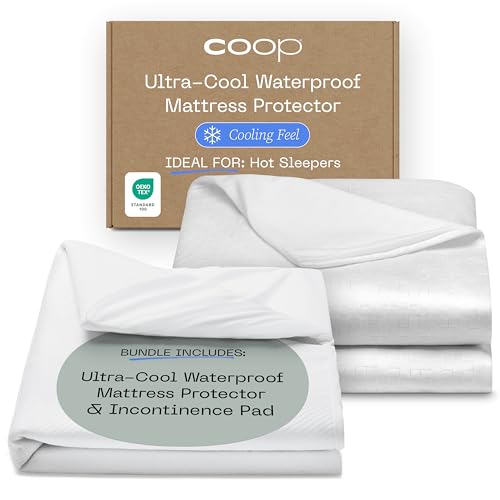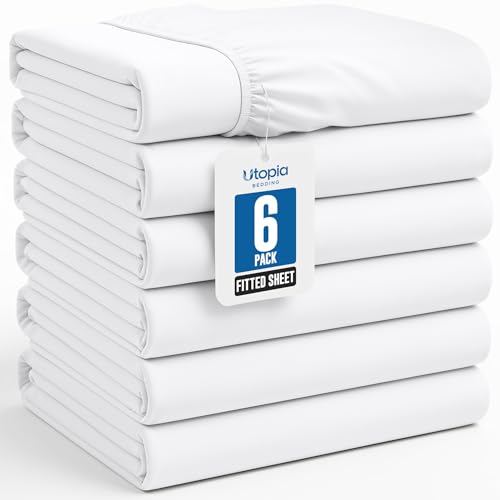Disclosure
This website is a participant in the Amazon Services LLC Associates Program, an affiliate advertising program designed to provide a means for us to earn fees by linking to Amazon.com and affiliated sites.
Introduction
Sleeping directly on a mattress without sheets is not just uncomfortable—it can actually be unhygienic and damaging to your mattress over time. While it might seem harmless to skip the sheets occasionally, doing so consistently exposes both you and your mattress to a range of avoidable problems.
Imagine curling up after a long day only to wake up sweaty, itchy, or even dealing with allergies. Sounds unpleasant? That’s what you risk when you skip bed sheets. Sheets serve as a protective barrier that shields your mattress from sweat, dead skin cells, body oils, and accidental spills—all of which can lead to bacteria buildup, stains, and unpleasant odors.
Beyond cleanliness, sleeping without sheets can also negatively affect your sleep quality. Without the soft comfort that clean, breathable sheets provide, your mattress may feel rough and trap heat, disrupting your rest.
Best Bedding Products for Sleeping Without Sheets
If you’ve been skipping sheets or considering alternatives, investing in high-quality bedding essentials can dramatically improve your comfort, hygiene, and sleep experience. Below are three top-rated products that either replace the need for sheets or significantly enhance your bedding hygiene and longevity.
1. Coop Home Goods Waterproof Mattress Protector
- Ultimate Protection, Enhanced Comfort: Our Ultra-Cool Waterproof Mattress…
- Designed Cooling Comfort: Coop’s Ultra-Cool Waterproof Mattress Protector is…
- Tired of noisy, incontinence pads? – Leave disposable incontinence pads in the…
- Why we picked it:
This ultra-soft, breathable protector guards your mattress from spills, sweat, and allergens without crinkling or overheating. - Key Benefits:
- Hypoallergenic and dust mite-resistant
- Quiet, stretchy fabric that feels like a sheet
- Easy to wash and fits mattresses up to 18 inches deep
2. Bedsure Cooling Bamboo Mattress Pad
- Just-Right Support: Bedsure BlendTek fill perfectly blends firm and soft fibers…
- Temp-regulating: Made from PCM fabric, this temp-regulating mattress topper can…
- Soft & Skin-Friendly: Crafted from cooling fabric, finer than 1/99 of a hair…
- Why we picked it:
Made from natural bamboo rayon, this pad is an excellent option for those who run hot at night and dislike sleeping directly on a mattress. - Key Benefits:
- Ultra-cooling and moisture-wicking
- Soft quilted top layer for comfort
- Machine washable and fits like a fitted sheet
3. Utopia Bedding Fitted Sheet (Microfiber)
- Fitted Sheet Set – Queen size 6-piece fitted sheets by Utopia Bedding measuring…
- All – Around Elastic – All – Around Elastic to pull in the borders to make it…
- Brushed Microber Polyester – Breathable brushed microfiber polyester fabric…
- Why we picked it:
If you’re tempted to ditch sheets due to discomfort, this breathable, budget-friendly fitted sheet offers a snug fit and smooth feel that could change your mind. - Key Benefits:
- Wrinkle-free, fade-resistant microfiber
- Deep pocket design fits most mattresses
- Lightweight and easy to wash regularly
Hygiene Risks of Sleeping Without Sheets
Sleeping directly on a mattress without sheets can create a breeding ground for bacteria, allergens, and pests. Your body naturally sheds skin cells, produces oils, and sweats throughout the night. Without a protective layer like a sheet, all of that ends up directly on your mattress.
Why this matters:
- Bacteria and Germ Accumulation:
Over time, body fluids, sweat, and oils soak into your mattress. This encourages the growth of bacteria and even mold, especially in humid climates. - Dust Mites and Allergens:
Mattresses trap dead skin cells, which are a primary food source for dust mites. These tiny creatures can trigger allergies, asthma, and skin irritation. - Difficult to Clean:
While sheets can be easily thrown into the washing machine, mattresses are not so simple to clean. Without a washable barrier, your mattress becomes dirtier faster. - Body Odors and Stains:
Over time, accumulated sweat and oils can lead to unpleasant odors and stubborn stains that are hard to remove and often void mattress warranties.
How sheets help:
- Create a washable barrier between your skin and the mattress
- Reduce allergens by capturing skin cells and dust before they reach the mattress
- Help preserve mattress hygiene and extend its lifespan
Impact on Mattress Longevity
Skipping sheets doesn’t just affect your hygiene—it can significantly reduce the lifespan of your mattress. Your mattress is a major investment, and without proper care and protection, it will wear out faster than expected.
How sleeping without sheets shortens mattress life:
- Increased Wear and Tear
Constant friction from your body against the mattress fabric can cause pilling, tearing, or thinning of the top layer. - Moisture Damage
Night sweats, spills, or even humidity can seep into the mattress. Unlike sheets, most mattresses are not designed to be washed or dried, so moisture builds up over time and can:- Weaken the internal structure (especially memory foam and latex)
- Lead to sagging, lumps, and loss of support
- Stains that Void Warranties
Many mattress warranties become void if the mattress is stained. Without a protective sheet or cover, even a minor spill or sweat patch can cost you coverage. - Odor Retention
Mattresses absorb body odors and spills much more easily without a fabric barrier. Over time, this makes your bed smell unpleasant and hard to freshen up.
Using sheets helps by:
- Acting as a first line of defense against dirt and moisture
- Preventing surface abrasion
- Allowing you to wash away sweat and body oils regularly, rather than letting them soak into the mattress
Comfort and Sleep Quality Without Sheets
You might think sheets are just for looks or tradition—but they play a key role in how well you sleep. Without them, you may be compromising on one of the most important aspects of rest: comfort.
Why going sheetless affects your sleep quality:
- Rough or Uncomfortable Mattress Surface
Most mattresses aren’t designed for direct skin contact. Their surface may feel coarse, sticky, or itchy compared to soft, breathable sheets. - Temperature Regulation Issues
- Sheets, especially those made from cotton or bamboo, are designed to be breathable.
- Sleeping directly on a mattress can trap heat, making you sweat and disrupting sleep.
- Increased Friction and Movement Discomfort
Your body may stick to the mattress surface due to sweat or body oils, making it harder to shift positions comfortably at night.
Benefits of using sheets for better sleep:
- Enhanced Softness and Smoothness
- High-quality sheets provide a layer of cushion and softness that helps you relax more quickly.
- Thermal Comfort
- They help regulate body temperature—keeping you cool in summer and warm in winter.
- Clean Feeling for Restful Sleep
- Climbing into a clean, freshly made bed is not just a luxury—it’s a psychologically comforting ritual that promotes deeper rest.
Health Concerns Linked to Not Using Sheets
Sleeping without sheets doesn’t just pose comfort and cleanliness issues—it can also impact your physical health. Your bed is meant to be a sanctuary, but without protective bedding, it can turn into a source of irritation, allergies, and even illness.
Key health risks of skipping sheets:
- Allergic Reactions and Respiratory Issues
- Dust mites thrive in warm, unwashed environments like exposed mattresses.
- This can trigger:
- Sneezing and nasal congestion
- Itchy or watery eyes
- Asthma attacks in sensitive individuals
- Skin Irritations and Breakouts
- Direct contact with a dirty mattress can cause:
- Rashes
- Acne or backne
- Itching from bacteria or mold buildup
- Direct contact with a dirty mattress can cause:
- Fungal and Bacterial Infections
- Sweat and body oils can penetrate mattress fibers.
- Combined with poor ventilation, this creates ideal conditions for:
- Fungal infections (like ringworm)
- Bacterial growth (including staph bacteria)
- Insect Infestations
- Dirty mattresses can attract bed bugs or fleas, especially if food particles or body fluids are present.
Using sheets helps prevent:
- Skin contact with bacteria and allergens
- Inhalation of dust and mites
- Moisture buildup that breeds germs
- Frequent doctor visits due to sleep-related skin or respiratory problems
When Is It Okay to Sleep Without Sheets?
While regularly sleeping without sheets is not recommended, there are certain short-term situations where it might be acceptable—provided you take extra care. Understanding the exceptions can help you make informed decisions without compromising hygiene or comfort.
Acceptable situations for going without sheets:
- During Laundry or Emergency Situations
- If your sheets are in the wash or unexpectedly soiled, a short nap or single night without sheets won’t cause lasting damage—just be sure to cover the mattress with something clean (e.g., a throw blanket or spare cover).
- Camping or Travel
- In remote locations where bedding isn’t available, consider using a sleeping bag liner, travel sheet, or mattress protector instead.
- Mattress Testing or Airing Out
- If you’re trying a new mattress or letting it breathe after unboxing, it’s okay to go sheetless briefly—as long as the surface is clean and dry.
- Minimalist or Quick Nap Scenarios
- A short nap without sheets in the middle of the day (on a freshly cleaned mattress) poses minimal risk, especially if you’re fully clothed.
If you must sleep without sheets, do this:
- Use a waterproof mattress protector
- Lay down a clean blanket or towel as a barrier
- Shower before bed to reduce dirt/oil transfer
- Avoid eating or drinking in bed to prevent spills
Conclusion
Sleeping on a mattress without sheets might seem convenient in the moment, but the consequences can be far-reaching. From hygiene concerns and reduced mattress lifespan to compromised comfort and potential health risks, skipping this simple bedding layer is a decision that affects much more than your night’s rest.
Key takeaways:
- Sheets protect your mattress from wear, moisture, and stains
- They enhance sleep comfort by offering a soft, breathable layer
- Sheets reduce health risks like allergies, skin irritation, and respiratory issues
- Going sheetless occasionally is okay, but not recommended long-term
Frequently Asked Questions About Sleeping on a Mattress Without Sheets
Here are some of the most common questions people ask about sleeping on a mattress without sheets—answered with your comfort, health, and hygiene in mind.
Is it unhygienic to sleep directly on a mattress?
- Yes. Mattresses absorb sweat, skin cells, and body oils, which can lead to bacteria, odors, and allergens. Sheets provide a washable barrier that prevents this buildup.
Can sleeping without sheets damage my mattress?
- Absolutely. Without sheets, your mattress is more prone to:
- Stains
- Moisture damage
- Premature wear and tear
- Loss of warranty coverage due to visible damage
What if I don’t like using traditional sheets?
- Try alternatives like:
- Mattress protectors (soft and waterproof)
- Quilted mattress pads for added comfort
- Bamboo or microfiber fitted sheets that are breathable and less restrictive
Is it okay to nap without sheets sometimes?
- Occasionally, yes—especially if your mattress is clean and you’re fully clothed.
- But for regular use, always have a protective barrier in place.
Can sleeping without sheets affect my skin or breathing?
- Yes. Exposure to dust mites and bacteria can trigger:
- Allergies
- Asthma
- Skin breakouts or rashes
Sheets help reduce these risks significantly.
Do mattress warranties require using sheets or protectors?
- Many warranties do not cover stained or damaged mattresses.
- Using sheets and/or protectors is often required to keep your warranty valid.



